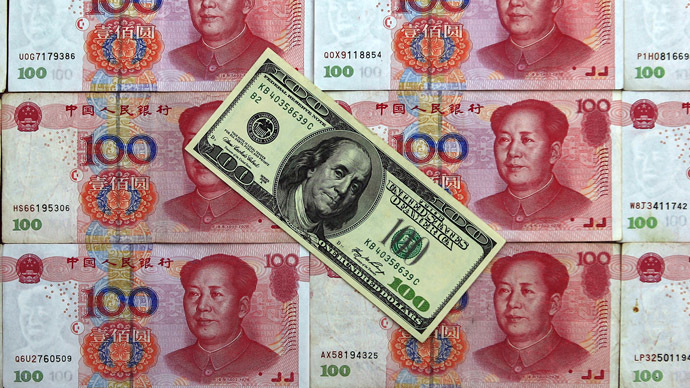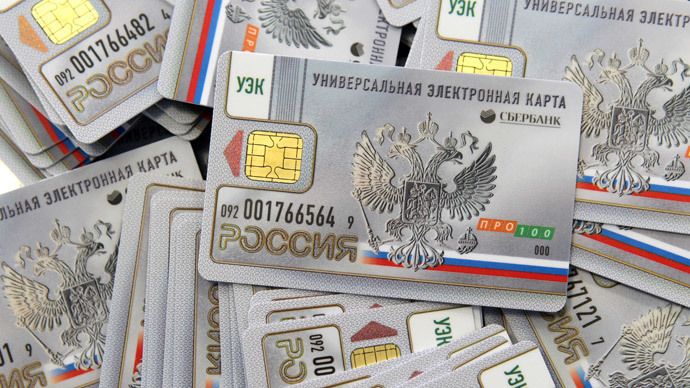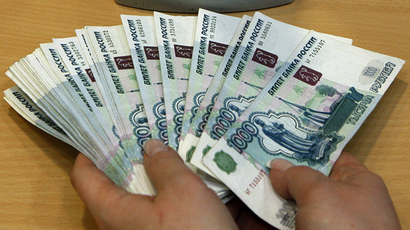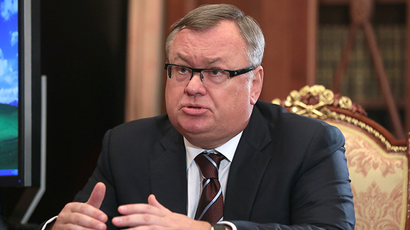Russian companies ‘de-dollarize’ and switch to yuan, other Asian currencies

Russia will start settling more contracts in Asian currencies, especially the yuan, in order to lessen its dependence on the dollar market, and because of Western-led sanctions that could freeze funds at any moment.
“Over the last few weeks there has been a significant interest in the market from large Russian corporations to start using various products in renminbi and other Asian currencies, and to set up accounts in Asian locations,” Pavel Teplukhin, head of Deutsche Bank in Russia, told the Financial Times, which was published in an article on Sunday.
Diversifying trade accounts from dollars to the Chinese yuan and other Asian currencies such as the Hong Kong dollar and Singapore dollar has been a part of Russia’s pivot towards Asian as tension with Europe and the US remain strained over Russia’s action in Ukraine.
Since Crimea voted to rejoin Russia, the US government has imposed Cold War era sanctions, which have hurt the Russian economy and have slowed lending and investment activity.
VTB, Russia’s second largest bank, intends to increase the amount of non-dollar settlements, according to the bank’s president Andrey Kostin.
In May, Russia’s biggest gas producer, Gazprom, announced it wants to start trading shares in Singapore, obtaining a listing as early as July, the company said. Just before that Russia’s state-owned gas giant inked a $400 billion gas deal with China.
“Given the amount of bilateral trade volume with China, of course, we are working on the expansion of settlement in rubles and yuan,” Kostin said at a meeting with Russian President Vladimir Putin, adding this is a goal the bank has been moving towards since May.

A new payment plan
Russia's main tasks are expanding currency operations and creating Russia’s own forthcoming national payment system.
The Central Bank of Russia is working on creating a national payment system, which both China and Japan have already established, and is expected to be up and running within four months.
Alexander Dyukov, the CEO of Gazprom Neft, the oil division of Gazprom, has been very vocal about ditching the dollar over escalating pressure from the West.
"This shows that in principle there is nothing impossible - you can switch from dollar to euro and from euro, in principle, to rubles," Vedomosti quotes Mr. Dyukov.
He has also said the company has discussed with customers the possibility of shifting contracts out of dollars, while Norilsk Nickel told the FT that it was discussing denominating long-term contracts with Chinese consumers in renminbi.
As of now, Russia is not preparing any countermeasures against the West, Putin’s chief advisor to the EU, Andrey Belousov has said.
“As long as Russia is not subject to systemic sanctions, which could bring an artificial limit to our economy’s access to dollars . . . then I don’t think Russia will take any steps in order to bring about artificial de-dollarization,” the FT quoted Belousov as saying.
Another swift move Russia has made towards Asia is the establishment of a joint rating agency with China, to replace more "biased" agencies like Fitch, Moody’s, and Standard & Poor’s.














